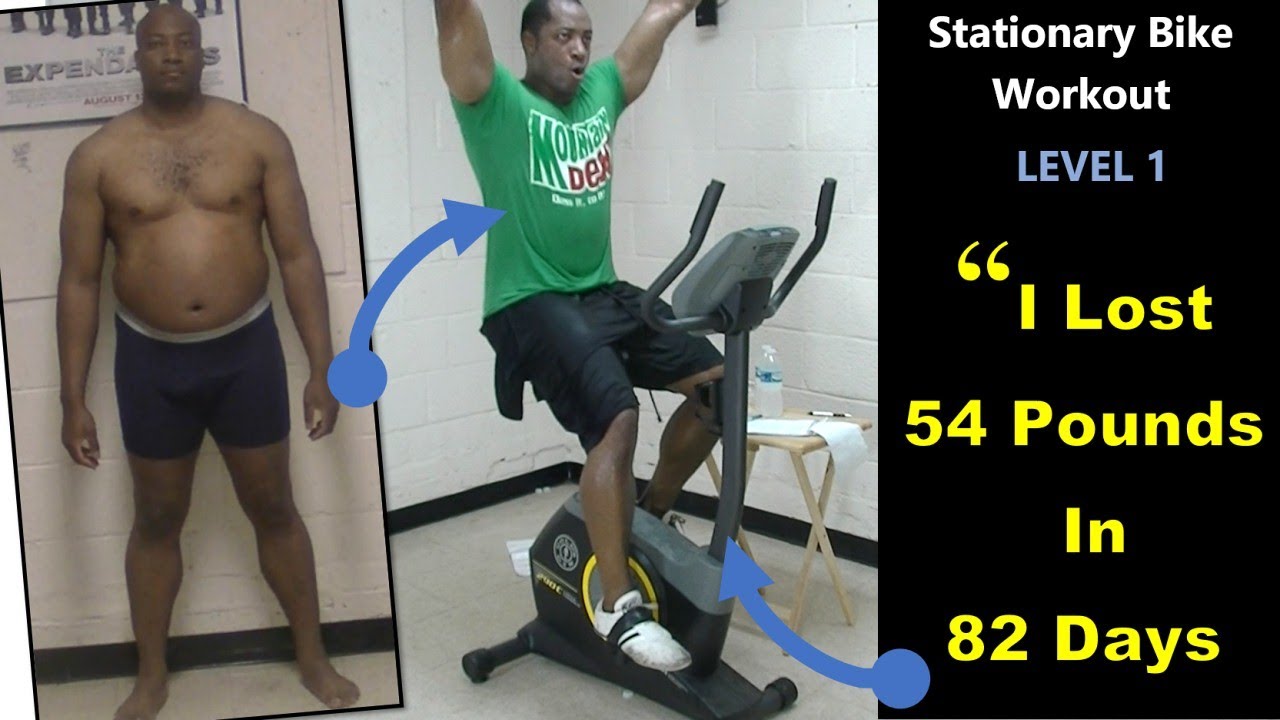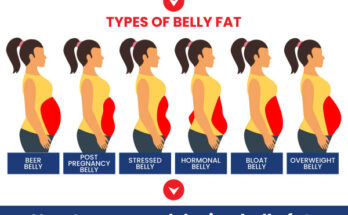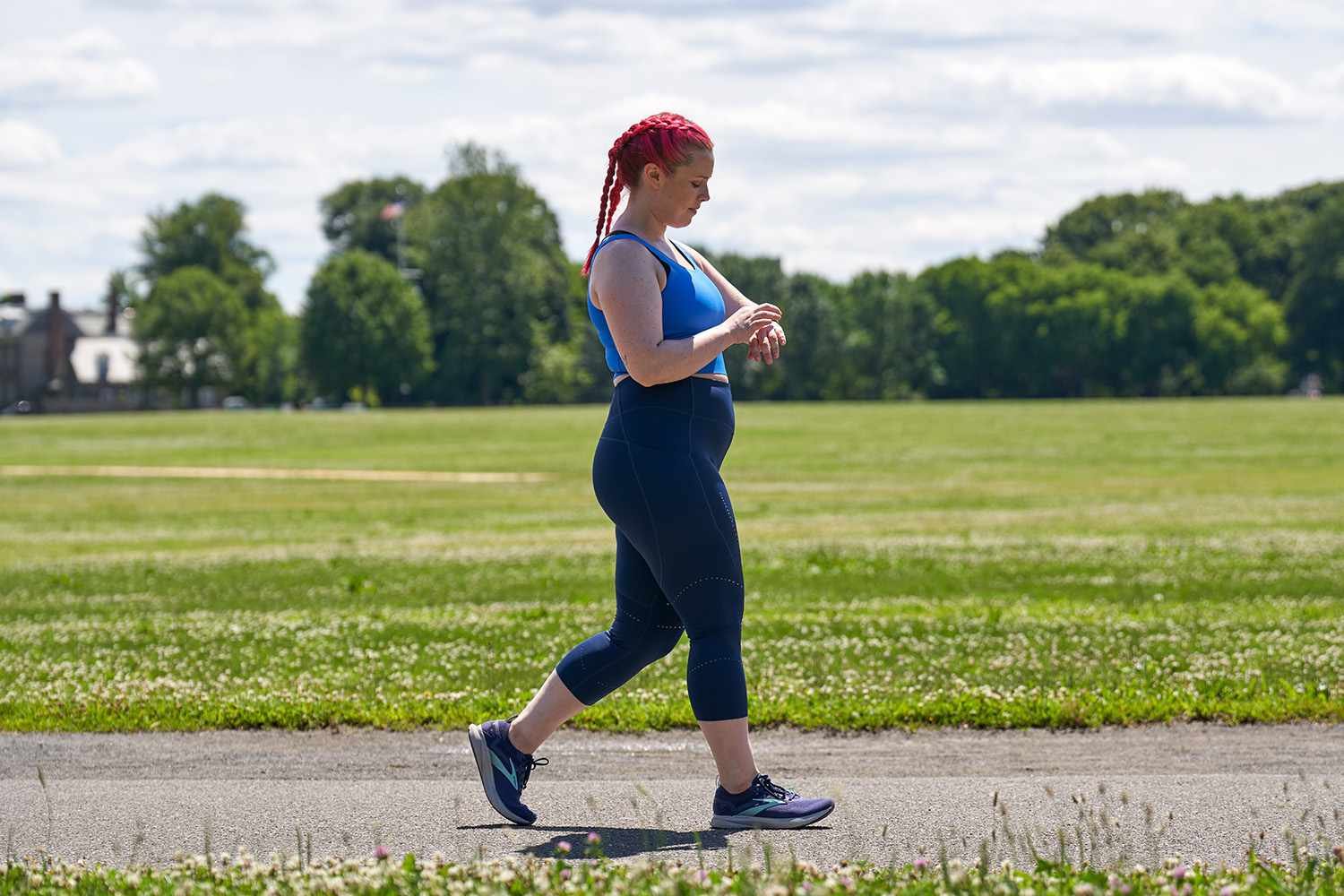To use an exercise bike for weight loss, engage in regular, high-intensity workouts and maintain a consistent routine. Track progress and adjust resistance for continual challenge and calorie burn.
Embarking on a weight loss journey can often feel overwhelming, but incorporating an exercise bike into your routine offers a manageable and effective method to help shed pounds. Exercise bikes provide a low-impact cardiovascular workout that’s kind to your joints and suitable for all fitness levels.
By setting achievable goals and following a structured training plan, you can maximize the fat-burning potential of your cycling sessions. To ensure you stay on track, consistency is key. Aim for at least 150 minutes of moderate-intensity cycling per week, or 75 minutes if you’re opting for vigorous workouts, as recommended by health experts. Remember to pair your exercise regimen with a balanced diet to promote optimal weight loss results. With determination and the right approach, using an exercise bike can be a powerful tool in achieving your weight loss objectives.
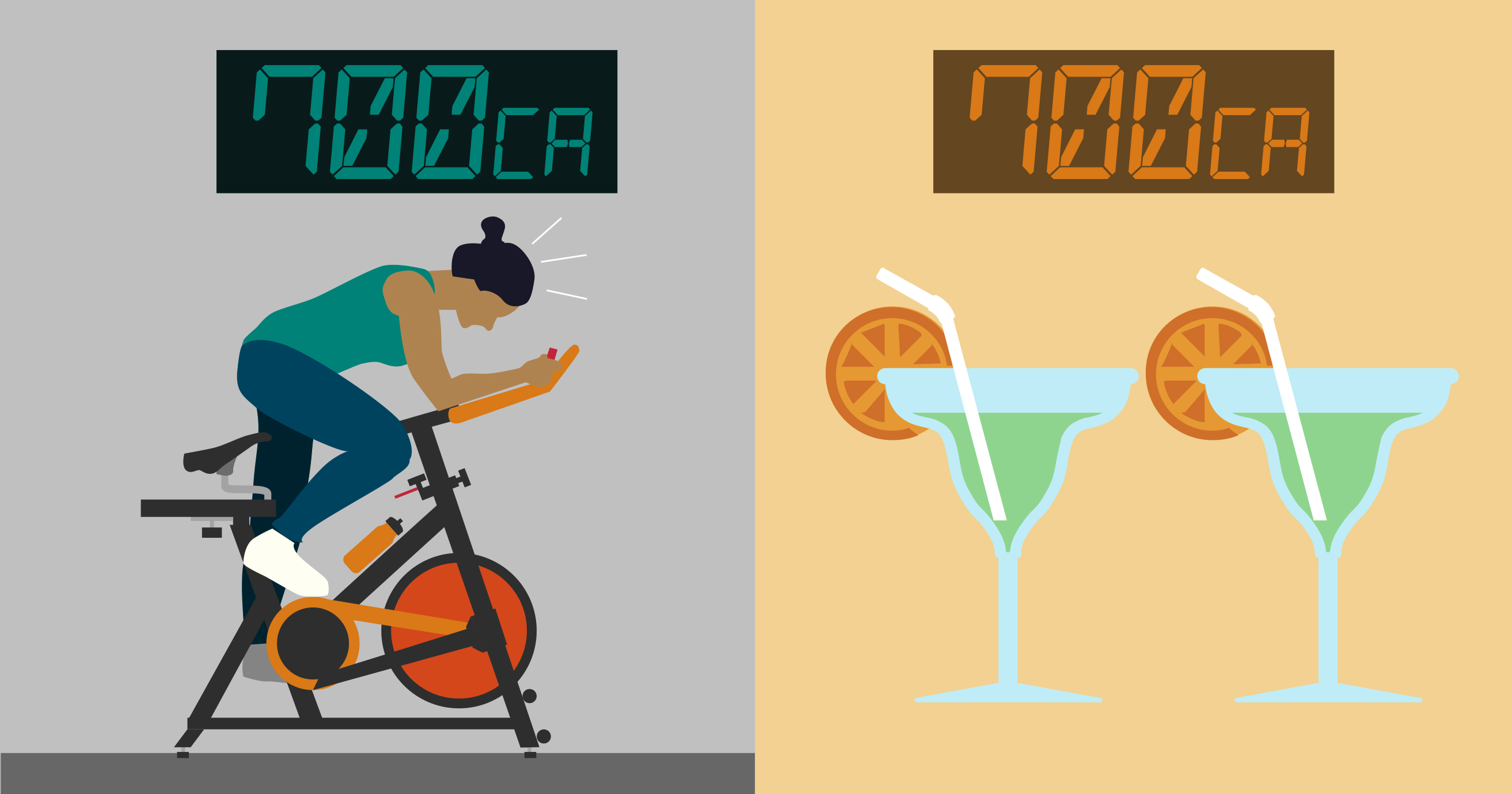
Credit: www.vox.com
Benefits Of Exercise Bikes For Weight Loss
Exercise bikes offer a convenient way to shed pounds right at home. These machines provide an effective workout for burning calories and improving health. Let’s explore how they help in weight loss.
Low-impact Cardio Option
Exercise bikes reduce stress on joints while offering a solid cardio workout. This makes them perfect for any fitness level, particularly for individuals with joint concerns. They promote blood circulation and boost heart health without heavy impact on knees and ankles.
Calorie Burning Efficiency
The efficiency of an exercise bike in burning calories is outstanding. With a steady workout, you can burn around 300-700 calories per hour, depending on intensity. A consistent routine on the bike can help maintain a calorie deficit for weight loss.
Building Lean Muscle Mass
Cycling on an exercise bike builds muscle, especially in the lower body. Stronger muscles improve metabolism, which helps the body burn more calories, even at rest. Building lean muscle contributes to a toned appearance as well.
| Duration | Calories Burned |
|---|---|
| 30 min | 150-350 |
| 1 hour | 300-700 |
- Consistent workouts lead to weight loss.
- Tailored intensity meets individual fitness goals.
Calories burned can vary based on individual weight, intensity, and fitness level.
Choosing The Right Exercise Bike
Embarking on a weight loss journey requires the right tool. An exercise bike stands out as a top choice. Your fitness goals become achievable with the perfect bike. Here’s how to find one.
Types Of Exercise Bikes
Exercise bikes come in different styles:
- Upright Bikes: Mimic traditional cycling and engage the core.
- Recumbent Bikes: Offer back support and a larger seat for comfort.
- Spin Bikes: Provide an intense workout similar to road bikes.
- Dual-action Bikes: Target both upper and lower body.
Key Features To Look For
Key features enhance your weight loss efforts. Look for:
- Adjustable Resistance: Tailors the workout’s intensity.
- Digital Monitors: Track your progress with metrics like calories and distance.
- Programmable Routines: Keep your workouts diverse and challenging.
- Heart Rate Monitors: Ensure you are in the right zone for optimal fat burning.
Ergonomics And Comfort Considerations
Ergonomics and comfort make workouts enjoyable and effective.
Adjustable Seats and Handlebars: Ensure a perfect fit to avoid strain.
Padded Seats: Improve comfort for longer sessions.
Sturdy Frame: Adds stability and safety to your rides.
Remember, a well-fitted bike reduces the risk of injury and increases the likelihood of sticking to your workout regimen.
Setting Up For Success
Ready to pedal your way to weight loss? Before you start sweating, set yourself up for success. A proper setup ensures a comfortable ride and a higher effectiveness of your exercise bike routine.
H3 Headings in HTML SyntaxAdjusting Your Bike For Optimal Use
Content under the first headingGetting your bike to fit you just right is key. Your knees should have a slight bend when the pedal is at its lowest. Adjust your seat and handlebars to prevent strain.
- Seat height – Align it with your hip when standing.
- Seat distance – You should reach the pedals without leaning forward.
- Handlebar height – High enough for comfort, low enough for challenge.
Creating A Workout Environment
Content under the second headingA good environment can boost motivation. Make sure your space is inviting. A fan for cooling, a towel for sweat, and upbeat music all set the stage for a great workout.
Consider these tips:
| Item | Description |
|---|---|
| Space | Bright and clutter-free |
| Airflow | Keep a fan or open a window |
| Entertainment | Place a screen or speakers nearby |
Safety Precautions Before Starting
Content under the third headingExercise safely to stay healthy and injury-free. Begin each session with a warm-up to loosen up your muscles. Always check the bike’s stability.
- Ensure all nuts and bolts are tight.
- Position the bike on a flat surface.
- Secure your feet in the pedals.
- Keep water within reach to stay hydrated.
Creating An Effective Workout Routine
An effective workout routine on an exercise bike can pave the path to weight loss success. Consistency, variety, and the right intensity levels are key components. Whether at the gym or home, a structured plan elevates calorie burning. Let’s delve into the essentials of designing an impactful exercise bike routine.
Warm-up And Cool-down Stages
Proper warm-up and cool-down are crucial for safety and performance enhancement. Begin with a 5-10 minute light pedal to wake up the muscles. Finish with another 5-10 minutes at a slow pace to help muscles relax.
- Breathing deeply loosens up the body
- Gradual intensity increase prepares muscles
- Slowing down heart rate promotes recovery
High-intensity Interval Training (hiit) On An Exercise Bike
HIIT involves short bursts of intense exercise followed by rest or low-intensity periods. Cycle hard for 30 seconds to a minute. Then, take a brief break before going fast again. This routine accelerates fat loss.
| Interval | Duration |
|---|---|
| High Intensity | 1 Minute |
| Low Intensity | 2 Minutes |
Incorporating Resistance And Speed Variations
Adjust resistance levels and speed to challenge your body. Start off on a moderate setting then increase every few minutes. It strengthens leg muscles and boosts metabolism.
- Begin at a comfortable speed
- Gradually add resistance for a challenge
- Alternate between high and low speeds
Nutritional Strategies To Complement Your Exercise
Finding balance between exercise and eating right is key for weight loss. A whirring exercise bike burns calories. Smart nutrition choices boost this effort. Understand this partnership to maximize results.
Caloric Intake And Quality
Eating fewer calories than your body needs leads to weight loss. But not all calories are alike. Choose foods that are rich in nutrients and low in empty calories.
- Fruits, vegetables, and whole grains provide energy and keep you full.
- Lean proteins support muscle recovery, especially after a bike session.
Macronutrient Balance
A diet that includes all three macronutrients – protein, carbs, and fats – is best. Protein builds muscles. Carbs fuel your rides. Fats support overall health.
| Macronutrient | Role | Good Sources |
|---|---|---|
| Protein | Muscle repair | Chicken, tofu, beans |
| Carbs | Energy | Oats, rice, apples |
| Fats | Health | Avocado, nuts, olive oil |
Hydration And Exercise Performance
Water is essential. It keeps you cool and helps muscles work. Drink water before, during, and after workouts. Aim for clear or pale yellow urine to know you’re hydrated.
- Start with a glass of water in the morning.
- Keep a water bottle nearby during the day.
- Replace lost fluids after sweating on the bike.
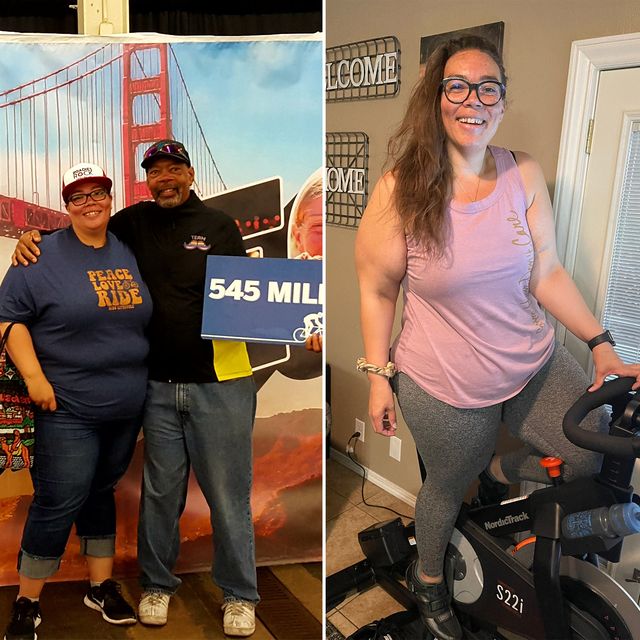
Credit: www.bicycling.com
Tracking Your Progress
When you embark on a weight loss journey with an exercise bike, tracking progress is essential. It helps to maintain motivation and see tangible results. Let’s dive into effective ways to keep tabs on your achievements.
Setting Realistic Goals
Begin with clear, attainable goals for your weight loss journey. Specify how much weight you want to lose and in what timeframe. Remember, small, consistent wins lead to major achievements.
Monitoring Your Weight And Body Measurements
Regularly track your weight and body measurements. This data reflects changes that aren’t always visible on the scale. Use a simple chart or diary to record these numbers weekly.
| Week | Weight | Chest | Waist | Hips |
|---|---|---|---|---|
| 1 | 200 lbs | 40 inches | 35 inches | 42 inches |
Using Fitness Apps And Gadgets
Technology can be a great ally. Fitness apps track exercise, diet, and even sleep quality. Wearable gadgets provide real-time data on heart rate and calories burned.
- Choose a fitness app that aligns with your goals.
- Set up alerts for workout reminders.
- Sync your app with wearable devices for detailed tracking.
Staying Motivated And Overcoming Plateaus
Embarking on a weight loss journey with an exercise bike can present challenges, like staying motivated and overcoming plateaus. We’ve all been there—enthusiasm wanes, numbers on the scale won’t budge, and the workout routine loses its spark. But don’t fret! With a few clever strategies, you can reignite your passion and power through those standstills.
Mixing Up Your Workout Routine
Sticking to the same routine can lead to boredom and plateau. Here’s how to mix it up:
- Try interval training: Alternate between high-intensity and low-intensity periods.
- Incorporate strength moves: Use bands or body weight for off-bike exercises.
- Change your pace: Play with different speeds to challenge your body.
- Use programs: Explore your bike’s preset programs for variety.
Seeking Support And Accountability
It’s easier to stay on track with a support system in place:
- Join a community: Find online forums or local groups with similar goals.
- Workout with a buddy: Schedule bike sessions with a friend.
- Hire a coach: A professional can provide personalized guidance.
- Set public goals: Share your targets with others to stay accountable.
Celebrating Milestones And Successes
Don’t forget to reward yourself for the hard work:
- Track progress: Keep a log of time spent or calories burned.
- Set small goals: Break your main goal into smaller, achievable steps.
- Reward achievements: Treat yourself to new workout gear or a movie night.
- Reflect on benefits: Appreciate the improved energy and health.

Credit: www.youtube.com
Frequently Asked Questions Of How To Use The Exercise Bike For Weight Loss
How Long Should You Ride A Stationary Bike To Lose Weight?
Aim for at least 30 minutes on a stationary bike daily to support weight loss. Consistency and a balanced diet amplify results.
Can You Lose Belly Fat By Riding A Stationary Bike?
Yes, riding a stationary bike can help you lose belly fat as part of a calorie-controlled diet and overall exercise routine, by burning calories and improving cardiovascular health.
What Is The Fastest Way To Lose Weight On A Stationary Bike?
The fastest way to lose weight on a stationary bike is through high-intensity interval training (HIIT) sessions. This involves alternating between intense bursts of activity and fixed periods of less-intense activity or complete rest. Aim for consistency and maintain a nutritious diet for better results.
Is 30 Minutes A Day On An Exercise Bike Enough To Lose Weight?
Yes, cycling for 30 minutes a day can contribute to weight loss, especially when combined with a healthy diet and other physical activity. Consistency and intensity are key factors for success.
Conclusion
Embarking on your weight loss journey with an exercise bike can be transformative. By setting achievable goals and maintaining consistency, remarkable results await. Remember, the key is to stay motivated, vary your workouts, and enjoy the ride. Start pedaling towards your dream physique one session at a time.
Let’s get fit!
